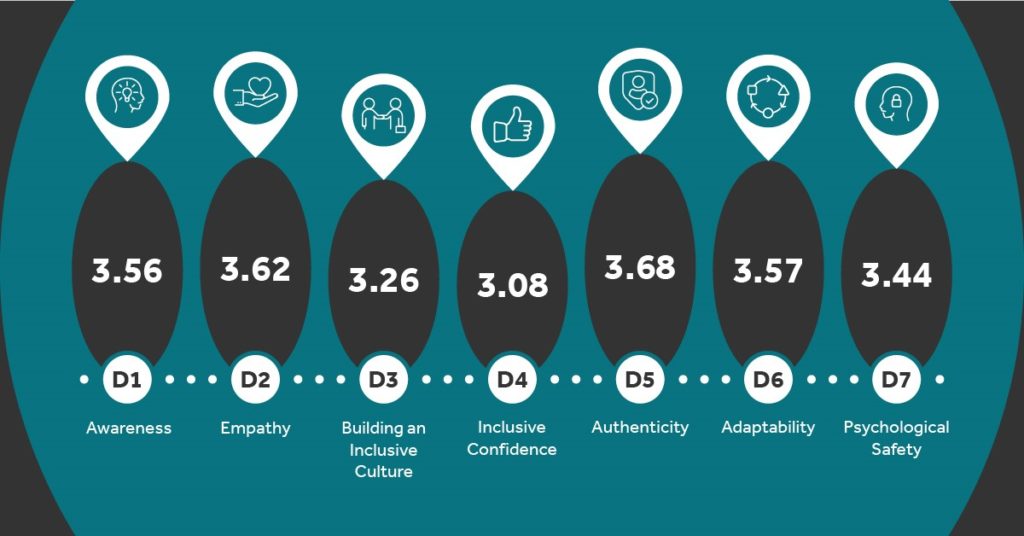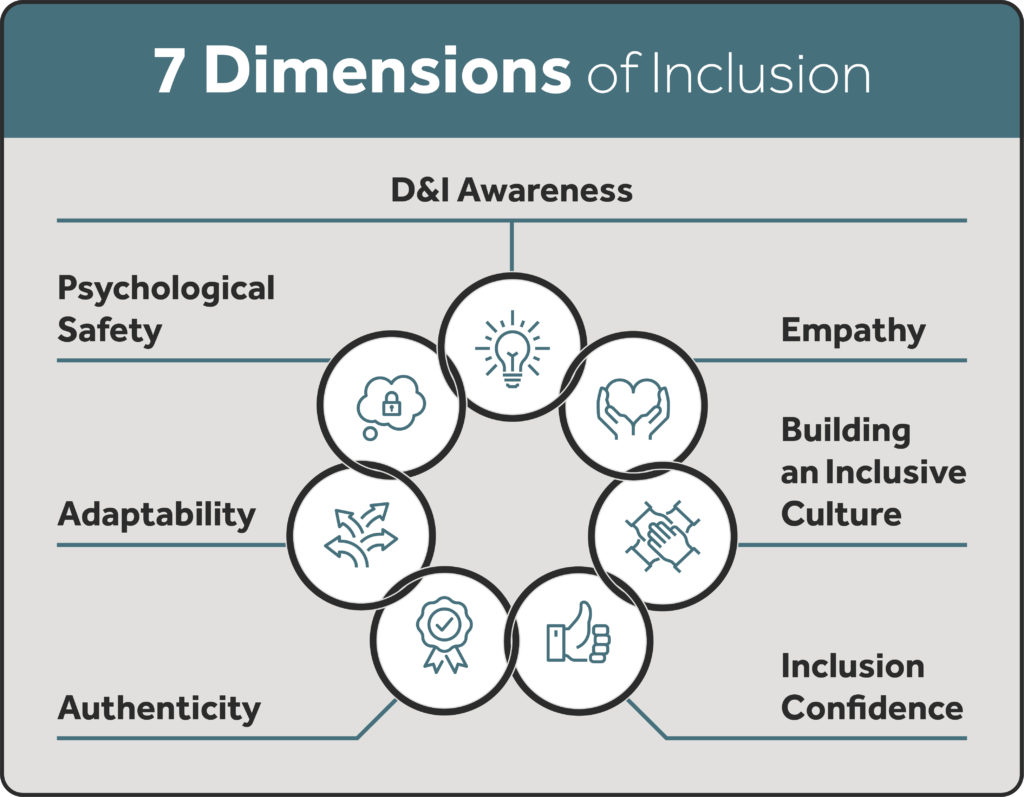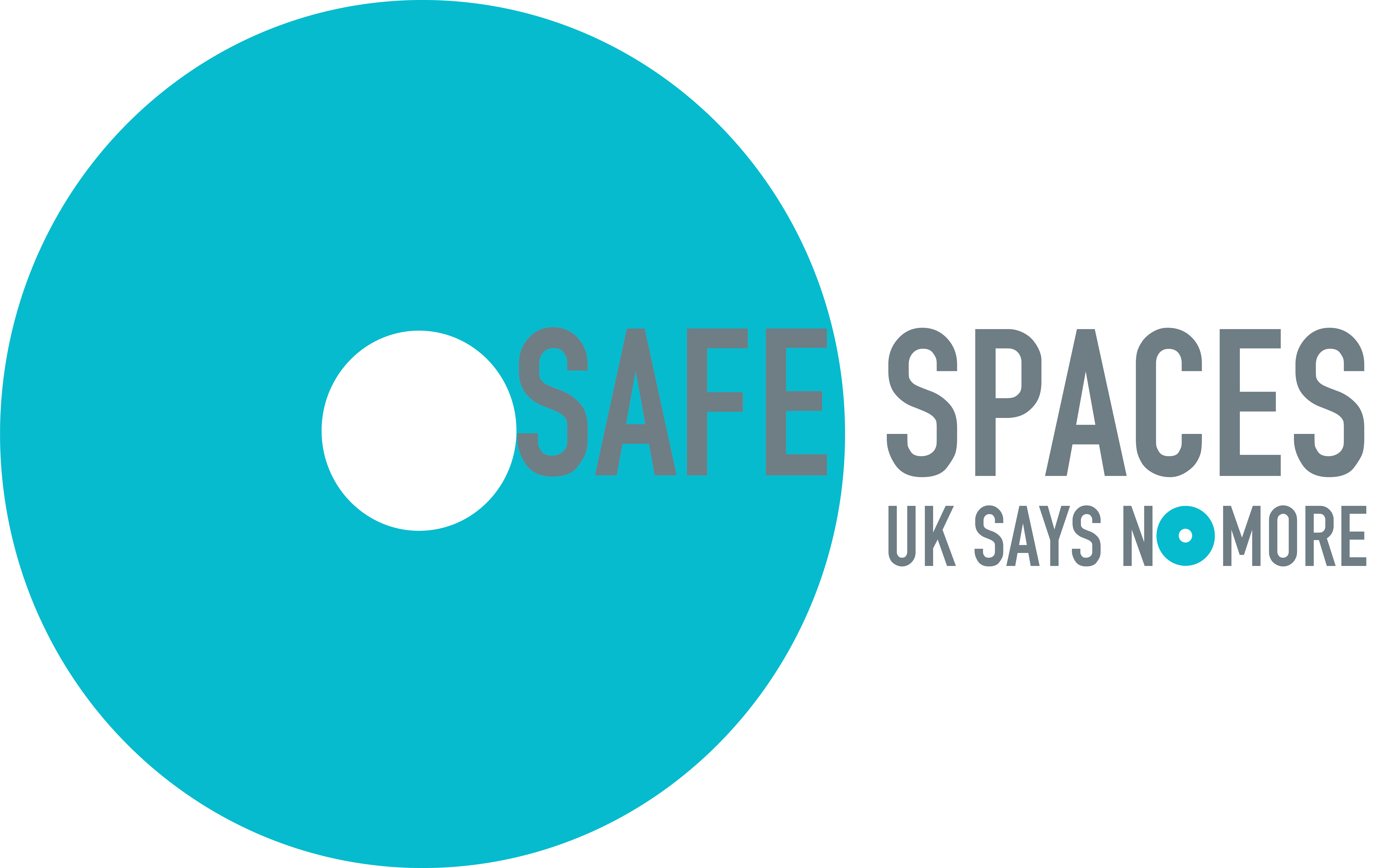Find Us
The Clear Company
The Base
20 Dallam Lane
Warrington
Cheshire
WA2 7NG

Any organisation pursuing a more inclusive culture without engaging leaders and building in accountability for leading the change, is making a significant mistake. Leadership engagement is a core principle of organisational and cultural change, yet it remains a key challenge around diversity and inclusion.
It is expected that every leader will be at a different level of maturity in terms of their diversity and inclusion knowledge and experience, therefore helping leaders to understand and analyse their skills around inclusive leadership is central to creating a more inclusive organisation.
Inclusion Maturity
Diagnostic tools are a great opportunity to provide leaders with a true picture of where they are on the diversity and inclusion journey creating a secure non-judgemental environment for further discussion and learning. Feedback from leaders undertaking the Clear Company’s 7 Dimensions of Inclusion diagnostic demonstrates just how impactful this individual/personal insight can be; leaders often share that they have not thought of inclusive leadership in the context of the 7 dimensions measured and knowledge of their maturity provides a good starting point to harnessing these skills to become a more inclusive leader.


Inclusion Maturity
Diagnostic tools are a great opportunity to provide leaders with a true picture of where they are on the diversity and inclusion journey creating a secure non-judgemental environment for further discussion and learning. Feedback from leaders undertaking the Clear Company’s 7 Dimensions of Inclusion diagnostic demonstrates just how impactful this individual/personal insight can be; leaders often share that they have not thought of inclusive leadership in the context of the 7 dimensions measured and knowledge of their maturity provides a good starting point to harnessing these skills to become a more inclusive leader.
Of course, the skills needed to create a psychologically safe space, to be adaptable and be authentic are often skills leaders use daily – but when considered in an inclusion context become increasingly powerful. Simply raising awareness of the importance of these skills in creating an inclusive culture clarifies personal responsibility and what inclusive action could look like for individual leaders.
Leaders from a wide range of industries have completed the Clear Company’s inclusive leadership programme, beginning with the 7 Dimensions of Inclusion diagnostic and the results clearly show consistently lower scores for inclusion confidence.
What do we mean when we talk about inclusion confidence?
Inclusion Confidence is related to the feelings and beliefs that leaders can trust, believe in, and be sure about. It is a state of mind marked by an ease and freedom from uncertainty, fear or embarrassment. Inclusion confidence is critically important as it provides the basis to take inclusive action rather than, for instance, avoiding having important inclusion conversations. Confidence also helps leaders to ‘try again’ and be resilient when it comes to difficult situations or outcomes that turn out differently from what we anticipated.
Our experience tells us that most leaders – typically experts in their field – can find it hard to talk around a topic in which they have limited knowledge. It is clearly not possible for leaders to have an in-depth knowledge on the wide range of lived experiences across their teams and wider organisations – and therefore conversations about racism, menopause, ex-offenders or carers for example, can leave leaders feeling ill-equipped. Equally, inclusive leadership expands across managing teams, supply chains, delivering to customers, and leaving a legacy to communities – it is not surprising that leaders find it challenging.
The key therefore to inclusive leadership is helping leaders understand that it is the skills and behaviours they deploy that truly make a difference – building knowledge and capability is of course important – however empathy and authenticity will allow leaders to be inclusive in most situations.
Further information:
The 7 Dimensions of Inclusion delivers sustainable D, E&I change through behavioural transformation. A key element of each individual’s inclusion journey, our inclusion diagnostic equips all users to understand their level of D, E&I maturity.
The Clear Company
The Base
20 Dallam Lane
Warrington
Cheshire
WA2 7NG
| Cookie | Duration | Description |
|---|---|---|
| cookielawinfo-checkbox-analytics | 11 months | This cookie is set by GDPR Cookie Consent plugin. The cookie is used to store the user consent for the cookies in the category "Analytics". |
| cookielawinfo-checkbox-functional | 11 months | The cookie is set by GDPR cookie consent to record the user consent for the cookies in the category "Functional". |
| cookielawinfo-checkbox-necessary | 11 months | This cookie is set by GDPR Cookie Consent plugin. The cookies is used to store the user consent for the cookies in the category "Necessary". |
| cookielawinfo-checkbox-others | 11 months | This cookie is set by GDPR Cookie Consent plugin. The cookie is used to store the user consent for the cookies in the category "Other. |
| cookielawinfo-checkbox-performance | 11 months | This cookie is set by GDPR Cookie Consent plugin. The cookie is used to store the user consent for the cookies in the category "Performance". |
| viewed_cookie_policy | 11 months | The cookie is set by the GDPR Cookie Consent plugin and is used to store whether or not user has consented to the use of cookies. It does not store any personal data. |

Dial ‘999’ for immediate assistance. If you are unable to speak or answer questions while on a 999 call, stay on the line, and when prompted, press 55 and your call will be transferred to the police. The local police number is 101 for non-emergencies.
*The ’55’ option will only work with 999.
Am I at Risk?
‘How do I know if I am suffering domestic abuse?’ This short survey will help you identify if the behaviours you are experiencing are domestic abuse.
If you are experiencing domestic abuse, you are not alone. Local support and help is easy to access through this search function. Click here
Local Support Services
If you are experiencing domestic abuse, you are not alone. Local support and help is easy to access through this search function. Click here
Contact National Helplines
National domestic abuse support services can offer you guidance here.
Useful Links
Access a range of other services that can support you. Click here